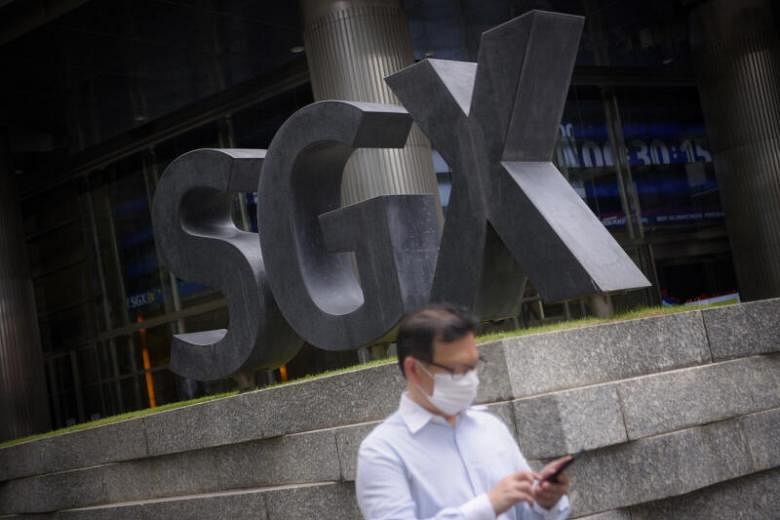SINGAPORE (BLOOMBERG) - Record low interest rates are tempting some retail investors in Singapore to load up on debt to buy shares, just as the coronavirus outbreak creates the most volatile markets since the global financial crisis.
Earlier this year, 31-year-old insurance agent Heng Kai Sheng got advances on three separate credit cards to the tune of $150,000. With the money, he opened a share-financing account at a local bank and pledged the lot as collateral. He was granted leverage of around 3.5 times, a $500,000 kitty Mr Heng's ploughing into the stock market.
"As Asians, our parents always tell us, 'Don't borrow money, repay your mortgage as soon as possible,'" said Mr Heng, whose initial $170,000 share portfolio now totals about $135,000. "But money is so cheap."
According to preliminary data from the Monetary Authority of Singapore, bank financing for stock purchases by retail investors rebounded in February after three consecutive months of declines. Individuals pumped around $2 billion into equities in March, 50 per cent more than the previous month, Singapore Exchange data show.
The increase comes as the Straits Times Index registered its worst quarter since the global financial crisis. The SPDR Straits Times Index ETF, the largest Singapore-listed exchange-traded fund tracking the city-state's stocks, saw net inflows of about $247 million in the three months ended March 31, its largest quarterly boost since 2002, Bloomberg-compiled data show.
"There are probably new and existing investors who aren't leveraged who would definitely want to take advantage of the sell-off to buy shares," said Mr Joel Ng, an analyst at KGI Securities (Singapore) Pte.
There are also some suggestions that retail investors may be using their homes as collateral to borrow money.
Mr David Gerald, founder of investor lobby group Securities Investors Association Singapore (Sias), said he was aware that investors "may want to refinance their housing loans" in the low-rate environment to free up cash for equity investments. However, "investors should be cautious not to over-leverage" in volatile markets because they may face margin calls, he added.
Not everyone is joining the party. While share financing by banks rose in February from the previous month, the amount decreased 11 per cent when compared to a year ago. And according to Mr Ng, margin calls "really intensified" in March, particularly for private-bank clients who were sold leveraged products or who took on debt to buy real-estate investment trusts.
Mr Heng said he has a three- to-five-year horizon for his investments, and maintains he's doing the maths to make sure he can always cover the interest, which ranges from 1.38 per cent to 2.03 per cent on the credit cards.
Some of the shares he bought include Oversea-Chinese Banking Corp, which slumped 21 per cent last quarter, Singapore Telecommunications, down 25 per cent, and Mapletree Industrial Trust, which declined 6.5 per cent.
Mr Heng knows he's taking a risk but he's not too worried.
"For young people like us, even if you fail, you can make up the capital," he said. "If you have sufficient earning power, you should take a bit more risk."











